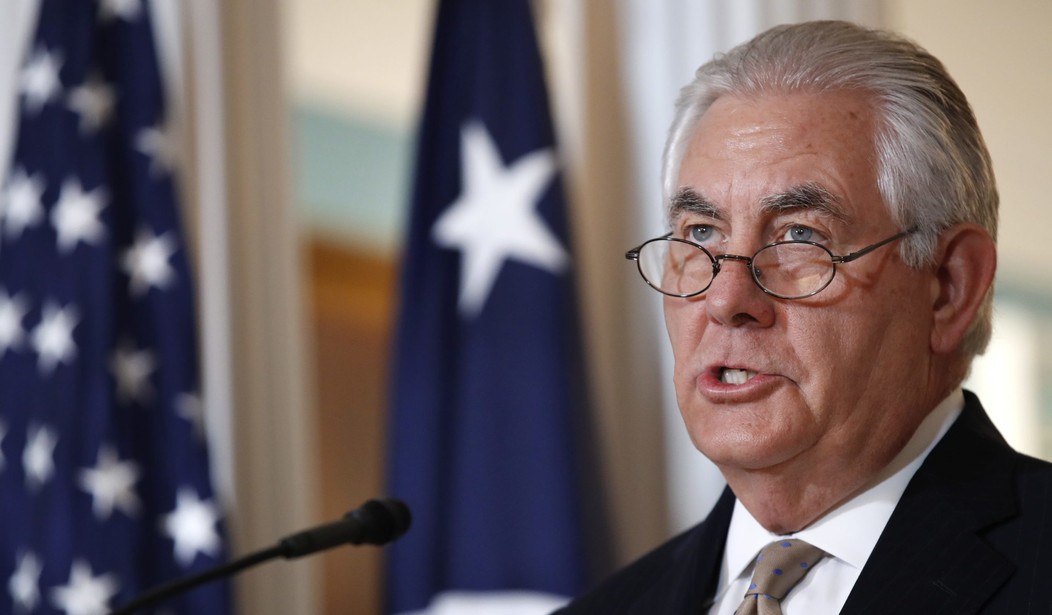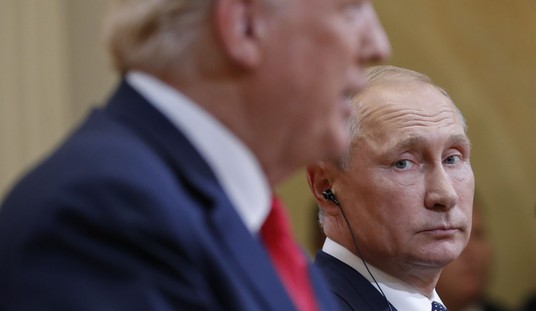The Muslim Council of Britain (MCB) gained worldwide headlines — and praise — for its announcement last week that 130 imams in the United Kingdom were refusing to perform funeral prayers for the London jihad mass murderers.
But as is so often the case, there was less to this much-heralded display of Islamic moderation than met the eye.
Secretary of State Rex Tillerson said the following last Monday in New Zealand:
I was actually encouraged when I heard on the news this morning that a number of imams in London have condemned these attackers and said they will not perform prayer services over their funerals, which means they’re condemning their souls. And that is what has to be done, and only the Muslim faith can handle this.
Moderate Muslims stood up at last, right? It certainly seemed so. From the MCB statement:
Imams and religious leaders from across the country and a range of schools of thought have come together to issue a public statement condemning the recent terror attack in London and conveying their pain at the suffering of the victims and their families.
In an unprecedented move, they have not only refused to perform the traditional Islamic prayer for the terrorist — a ritual that is normally performed for every Muslim regardless of their actions — but also have called on others to do the same. They said:
“Consequently, and in light of other such ethical principles which are quintessential to Islam, we will not perform the traditional Islamic funeral prayer over the perpetrators and we also urge fellow imams and religious authorities to withdraw such a privilege. This is because such indefensible actions are completely at odds with the lofty teachings of Islam.”
This all sounds great, but there’s just one catch.
Muhammad himself is depicted in hadiths as forbidding funeral prayers for martyrs.
Islamic law forbids such prayers as well.
To be clear:
Withholding funeral prayers is an HONOR reserved for those who die while committing jihad.
In one hadith — hadith are reports about Muhammad’s words and deeds that, when deemed authentic, are normative for Islamic law — the prophet of Islam ordered:
[Two martyrs to] be buried with their blood (on their bodies). Neither was the funeral prayer offered for them, nor were they washed.
One of the martyrs’ sons recalled:
When my father was martyred, I started weeping and uncovering his face. The companions of the Prophet stopped me from doing so but the Prophet did not stop me. Then the Prophet said, “(O Jabir), don’t weep over him, for the angels kept on covering him with their wings till his body was carried away (for burial)” (Bukhari 5.59.406).
Muhammad told Jabir not to weep because his father was not dead, but alive:
But do not think of those that have been slain in Allah’s cause are dead. Nay, they are alive! With their Sustainer have they their sustenance (Qur’an 3:169).
Based on the hadith in which Muhammad orders the bodies of the martyrs not to be washed and funeral prayers not to be said over them, as well as others like it, Islamic law states:
[It is] unlawful to wash the body of a martyr … or perform the funeral prayer over him.
…
[A] martyr (shahid) means someone who died in battle with non-Muslims” (Reliance of the Traveller, g4.20).
What Rex Tillerson — and much of the Western world, and certainly much of Western media — took as a great show of Muslim rejection of terrorism was actually a display of Muslim adherence to Islamic law, Muslim acceptance of terrorist deaths as Islamic martyrdom, and application of Muhammad’s dictum “war is deceit” (Bukhari 4.52.268).
War is deceit, indeed. The Qur’an warns believers not to take unbelievers as “friends or helpers” (َأَوْلِيَا — a word that means more than casual friendship, but something more like an alliance), “except when taking precaution against them in prudence” (3:28). This is a foundation of the Islamic idea that believers may legitimately deceive unbelievers when under pressure. The word used for “guard” in Arabic is tuqātan, from taqiyyatan — hence the now familiar term taqiyya.
The renowned Qur’an commentator Ibn Kathir says that the phrase “except when taking precaution against them in prudence” means:
… believers who in some areas or times fear for their safety from the disbelievers … [may] show friendship to the disbelievers outwardly, but never inwardly. For instance, Al-Bukhari recorded that Abu Ad-Darda’ said, “We smile in the face of some people although our hearts curse them.” Al-Bukhari said that Al-Hasan said, “The Tuqyah [taqiyya] is allowed until the Day of Resurrection.”
The MCB made sophisticated use of this weapon last week, fooling the international media and even the secretary of State into thinking that a demonstration of what they would call “extremism” was actually “moderation.”
It was an object lesson in the dangers of trying to formulate counter-terror policy without understanding the motivating ideology of the terrorists themselves.










Join the conversation as a VIP Member